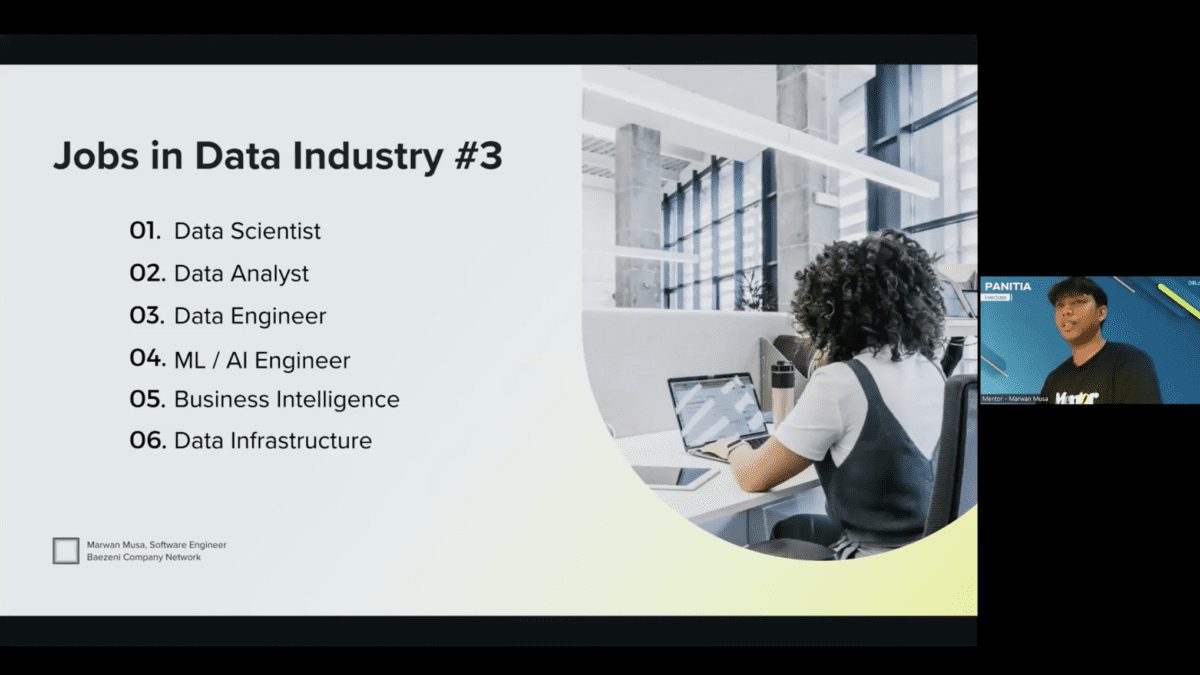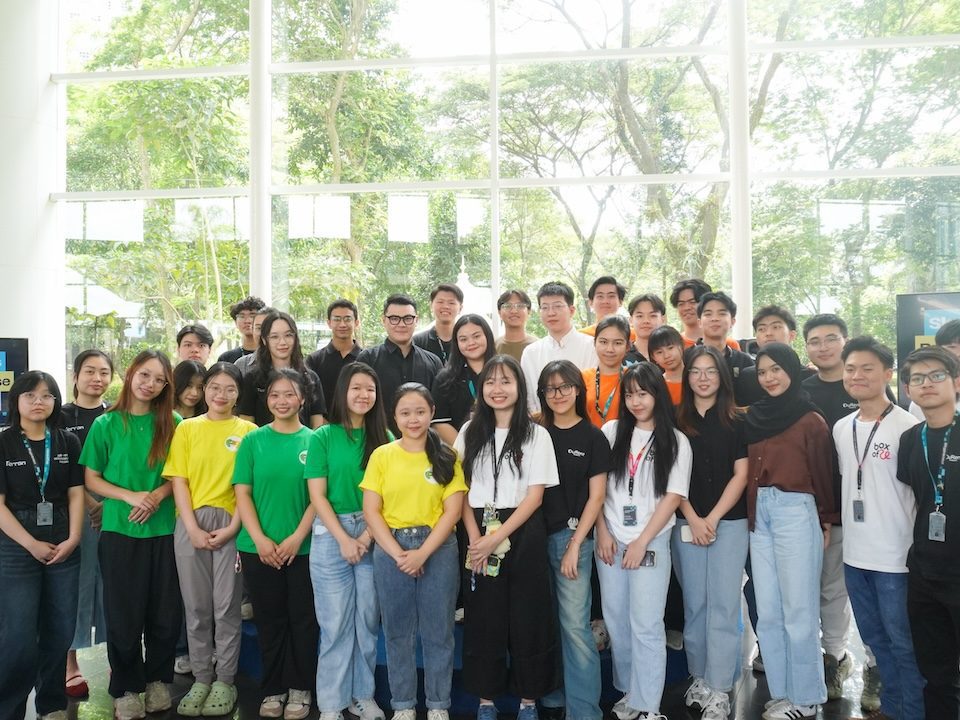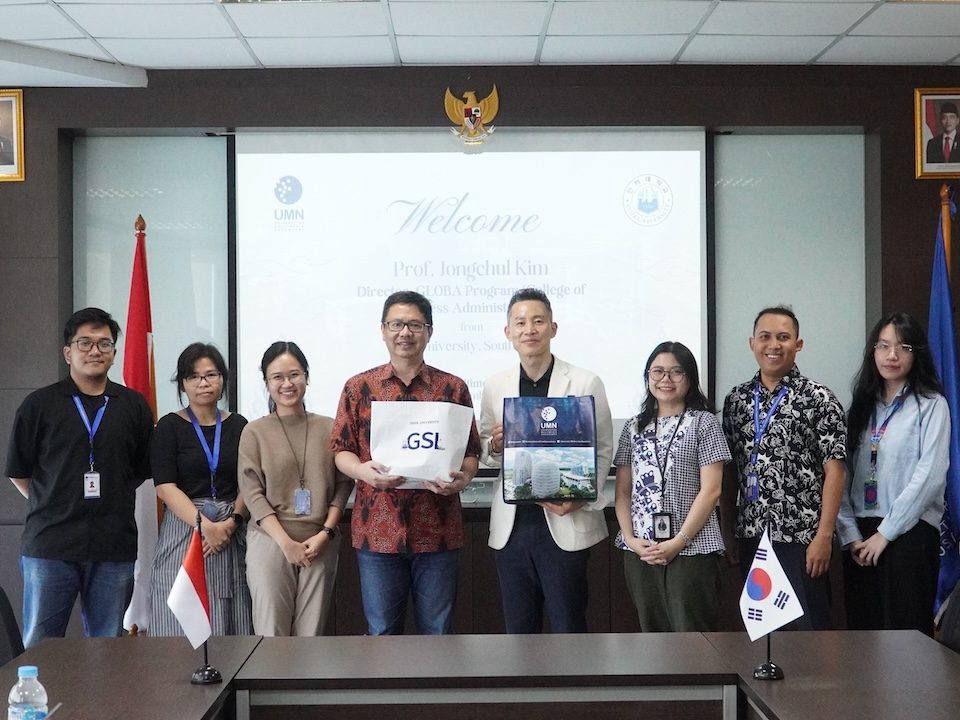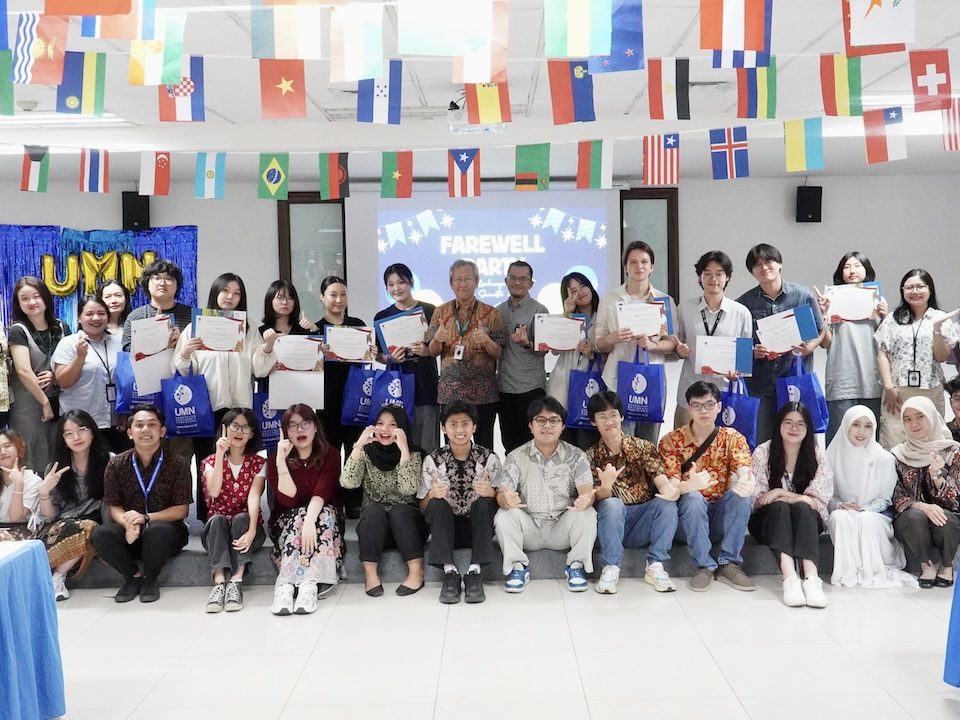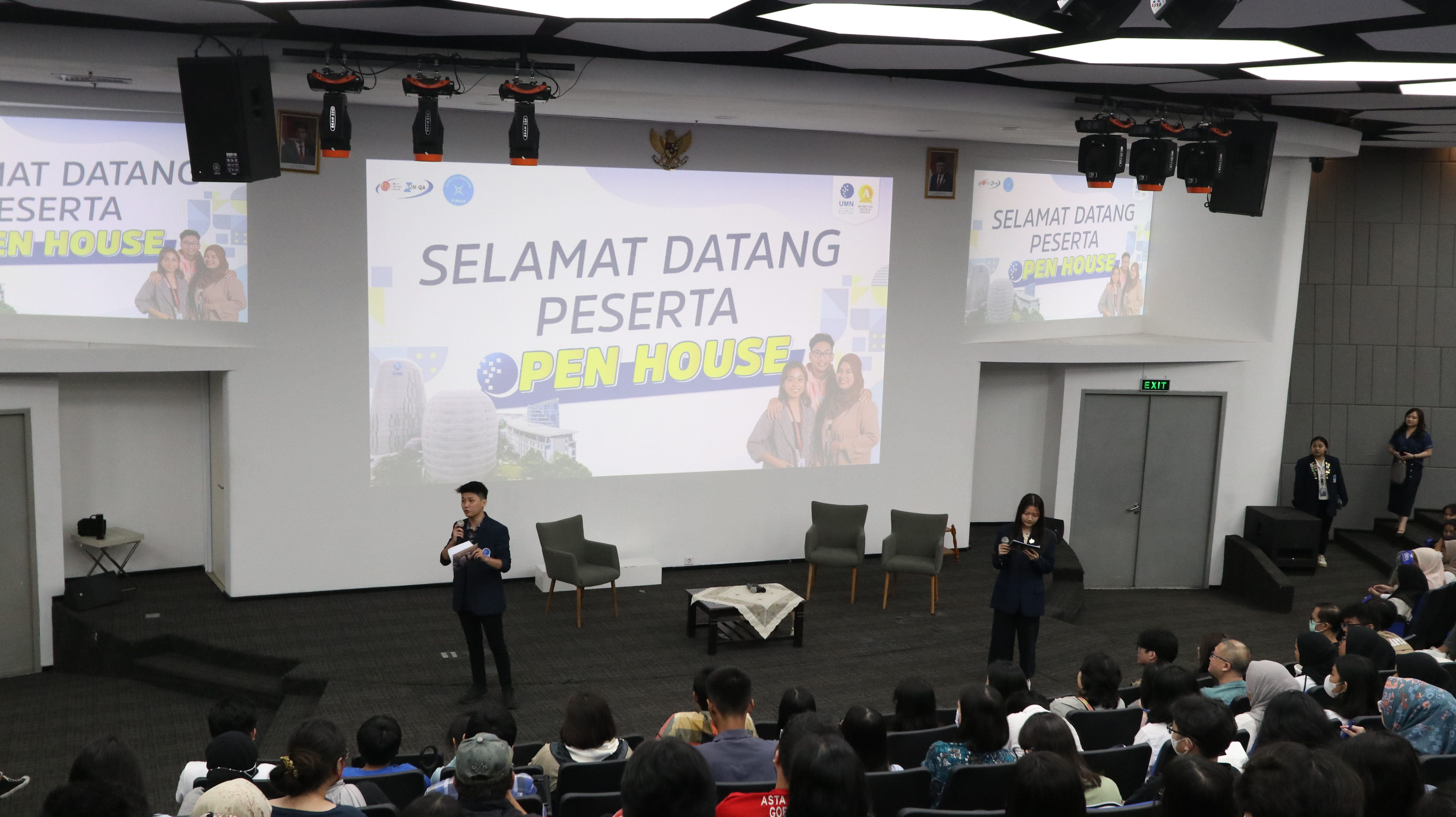
Enlivening The UMN Building, Look at The Excitement of Hundreds of New Student Candidates at The UMN 2024 Open House
January 30, 2024
UMN Student Exchange Program: Go International!
January 30, 2024
Tangerang – Data is one of the most valuable assets in this ever-growing era. The Data field is the most recommended science for students pursuing promising job prospects or unlocking new digital skills. This is not only per industry needs relating to professional practitioners to help process their company data but also helps improve digital literacy for students to prepare for future work trends.
Quoted from the DQLab online event on the Free Class program: Data Science (Batch 21) program titled Data Science: Beyond the Buzz, by inviting Marwan Musa, Software Engineer at Baezeni Company Network, as a presenter on Wednesday (10/01/24), provided an introduction and explanation of the data field and the job prospects of the data field itself.
As the opening material, Marwan explained the significance of data and its implementation, considering the increasing amount of data produced and the need for data processing to make the data valuable and impact everyday life.
“This (data) is so important because small or large businesses should rely on data in running operations, financial reports, or making marketing strategies. If the company does not use the existing data (to the fullest), it will not get or find an effective strategy. If a business or company wants to remain relevant and competitive, it must be able to implement Data Science,” Marwan explained.
In other words, if we, as someone who can turn data into valuable insights (through data processing and analysis), we will become so important to a company or organization. Thus, the opening of jobs in the field of data and digital / technology in several agencies such as the Data Scientist profession, Data Analyst, Data Engineer, and other professions that intersect with data analysis.
“Data Science is a science that combines mathematics & statistics, special programming, analytics, and artificial intelligence and machine learning specifically in certain fields to reveal insight or hidden information from existing data. This information can later be used as a decision guide for an agency or business,” said Marwan in explaining Introduction to Data Science (source IBM).
After learning the science of data science, Marwan further explained the job description of a data practitioner, namely someone responsible for the data owned (agency or business).
“According to the definition of data, the main responsibility of a Data Scientist is to obtain and store data safely and efficiently. Then, understand and analyze data to generate insights, communicate the results of data analysis, and recommend them to the team and other stakeholders. In addition, (Data Scientists) build models & algorithms, and don’t forget that technology continues to develop, so another main task is to keep learning about the development of trends in the industry,” said Marwan.
As for the skills that can be selected and pursued as data practitioners (such as Data Scientists) to manage and analyze data optimally, through the following material, Marwan explains data tools that can be selected, including programming tools available in R, Python, JavaScript, then in data visualization tools available Matplotlib, Tableau, Plotly, Pandas. Then, in managing data (database), you can use MySQL, MongoDB, and SQLite.
Entering the discussion more deeply, he explained details about what kind of job prospects we have when choosing to be data practitioners in the industry.
“Most of them will follow several series, namely there are Junior Level, Mid Level, and Senior Level. Typically, there will be a probation period for several months at this Junior level before becoming a Junior Data Science. We enter the Mid Level a few years later, where we become individual contributors. The scope of tasks and work will be greater. Previously, in Junior Data Science, we were in charge of creating code for data exploration or statistical analysis. At the mid-level, we must know the entire workflow, from collecting to training data. Then, at the senior level, practitioners have been pursuing the field of data for many years (3-5 years). This position will usually work with many teams and become a leader and liaison between several teams, such as the CTO,” Marwan said.
Understanding data, data skill needs, and job prospects as data practitioners through this webinar is the right preparation. It is also suitable for beginners interested in the data field.
“Our one small step is a thousand prefixes in the future, meaning we have to start something to get something.” This is a big statement from Marwan at the end of the webinar session to participants as prospective digital talents facing how to start learning data.
DQLab is a data science course platform that can help you upskill and prepare for a career as a data professional in the industry. Register for the Data Analyst class through DQLab LiveClass – Bootcamp to prepare to become a data practitioner!
By Agnes Nurlisa | DQLab
English translation by Levina Chrestella Theodora
Kuliah di Jakarta untuk jurusan program studi Informatika| Sistem Informasi | Teknik Komputer | Teknik Elektro | Teknik Fisika | Akuntansi | Manajemen| Komunikasi Strategis | Jurnalistik | Desain Komunikasi Visual | Film dan Animasi | Arsitektur | D3 Perhotelan , di Universitas Multimedia Nusantara. www.umn.ac.id

